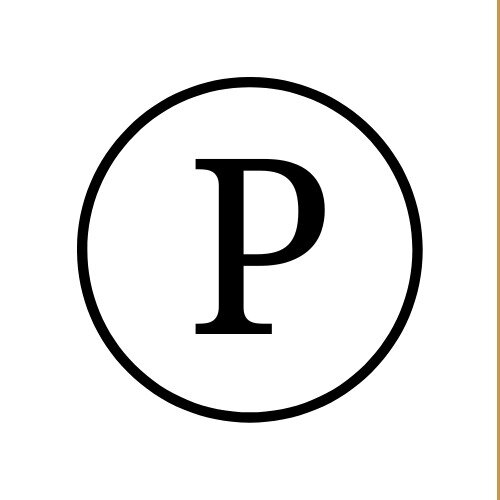Best Art & Cultural Property Law Lawyers in Nashville
Share your needs with us, get contacted by law firms.
Free. Takes 2 min.
List of the best lawyers in Nashville, United States
About Art & Cultural Property Law in Nashville, United States
Art & Cultural Property Law in Nashville, United States, encompasses the legal frameworks that govern the acquisition, ownership, protection, and distribution of art and cultural artifacts. Nashville's vibrant arts scene and rich cultural heritage make it a unique city of interest in this field. This area of law deals with a wide range of issues, from copyright protection of art pieces to the legalities of purchasing and selling cultural property and addressing claims involving looted or stolen artifacts.
Why You May Need a Lawyer
There are numerous situations where legal assistance in Art & Cultural Property Law might be necessary:
- Purchasing or Selling Art: Legal advice can help navigate the complexities of contracts and ensure compliance with relevant laws.
- Estate Planning: When including art or cultural items in an estate plan, professional guidance ensures proper valuation and distribution.
- Art Theft or Fraud: Legal expertise can be vital in recovering stolen pieces or defending against fraudulent claims.
- Cultural Heritage Claims: Dealing with claims related to repatriation or restitution of cultural property.
- Intellectual Property Rights: Protecting copyright, trademarks, or other rights associated with art.
Local Laws Overview
Nashville's legal landscape for art and cultural property involves several local regulations that ensure the protection and proper handling of cultural sites and art pieces:
- Historic Zoning and Preservation Ordinances: These laws aim to protect Nashville's historic neighborhoods and landmarks, crucial for cultural preservation.
- Art Acquisition Policies: Local statutes govern how public and private entities acquire artworks, ensuring ethical transactions.
- Public Art Programs: Legal frameworks for integrating art into public spaces, including guidelines for commissioning and managing art installations.
Frequently Asked Questions
What is cultural property?
Cultural property includes artworks, artifacts, monuments, writings, and other objects of historical, artistic, or cultural significance.
How can I prove ownership of a piece of art?
Ownership can be demonstrated through documentation such as purchase receipts, provenance records, and previous sales agreements.
What are my rights if my artwork is copied without permission?
If your artwork is copied without authorization, you may seek recourse under copyright laws to protect against infringement and potentially recover damages.
What should I consider before purchasing art from another country?
Consider legal import regulations, provenance documentation, and the risk of purchasing pieces that may have been illicitly obtained.
How does Nashville regulate public art installations?
Public art installations in Nashville are regulated by policies that ensure the integration of art into public spaces while respecting historical and community contexts.
How can I ensure my art collection is properly included in my estate plan?
A legal professional can help evaluate your collection's worth and draft documents to manage its distribution according to your wishes.
What are restitution claims for cultural property?
Restitution claims involve the return of cultural property to its rightful owners or descendants, often in cases of theft or appropriation during wartime.
What is provenance, and why is it important?
Provenance refers to the ownership history of an artwork or artifact; it is crucial for verifying authenticity and lawful ownership.
Can art be used as collateral for loans?
Yes, art can be used as collateral, but it's important to obtain a precise valuation and consult legal expertise to structure the transaction properly.
Are there tax incentives for donating art to museums in Nashville?
Yes, donating art can offer tax deductions. Consulting a tax advisor familiar with art donations will provide guidance on potential benefits and obligations.
Additional Resources
For more information or assistance with Art & Cultural Property Law in Nashville, consider the following resources:
- Nashville Arts Commission: Offers guidance on public and private art initiatives.
- The Nashville Metropolitan Historical Commission: Provides resources on historic preservation and cultural property management.
- The American Bar Association (ABA): Provides resources and directories for locating legal professionals in art law.
Next Steps
If you require legal assistance in Art & Cultural Property Law, consider the following steps:
- Identify Your Needs: Clearly define the specific legal issues or questions you have.
- Research Lawyers: Look for attorneys who specialize in art and cultural property law within Nashville.
- Schedule Consultations: Meet with potential lawyers to discuss your case and understand their approach.
- Evaluate Experience: Consider the lawyer's experience, track record, and familiarity with local laws in your selection process.
- Engage Legal Services: Once comfortable, formally engage the lawyer's services to address your legal needs.
Lawzana helps you find the best lawyers and law firms in Nashville through a curated and pre-screened list of qualified legal professionals. Our platform offers rankings and detailed profiles of attorneys and law firms, allowing you to compare based on practice areas, including Art & Cultural Property Law, experience, and client feedback.
Each profile includes a description of the firm's areas of practice, client reviews, team members and partners, year of establishment, spoken languages, office locations, contact information, social media presence, and any published articles or resources. Most firms on our platform speak English and are experienced in both local and international legal matters.
Get a quote from top-rated law firms in Nashville, United States — quickly, securely, and without unnecessary hassle.
Disclaimer:
The information provided on this page is for general informational purposes only and does not constitute legal advice. While we strive to ensure the accuracy and relevance of the content, legal information may change over time, and interpretations of the law can vary. You should always consult with a qualified legal professional for advice specific to your situation.
We disclaim all liability for actions taken or not taken based on the content of this page. If you believe any information is incorrect or outdated, please contact us, and we will review and update it where appropriate.










